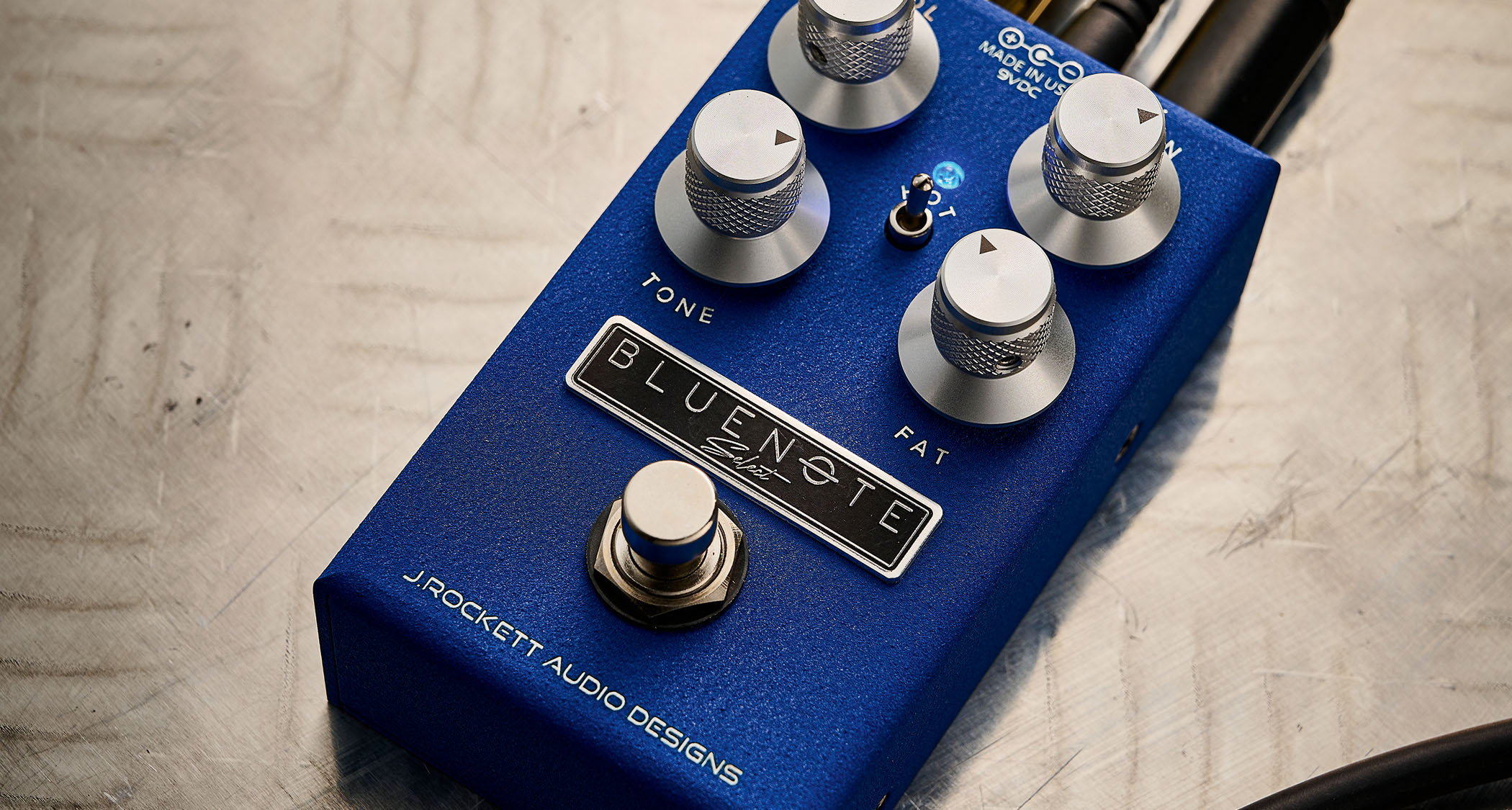Richie Ranno on auditioning for Ozzy Osbourne, how a uniquely inlaid Strat helped rename Starz and why “there is no future” for the influential hard-rock outfit
The former Stories axeman recalls his friendship with Randy Rhoads, dodgy dealings with Kiss's management and explains why he thinks Ernie Ball Music Mans are the best guitars around
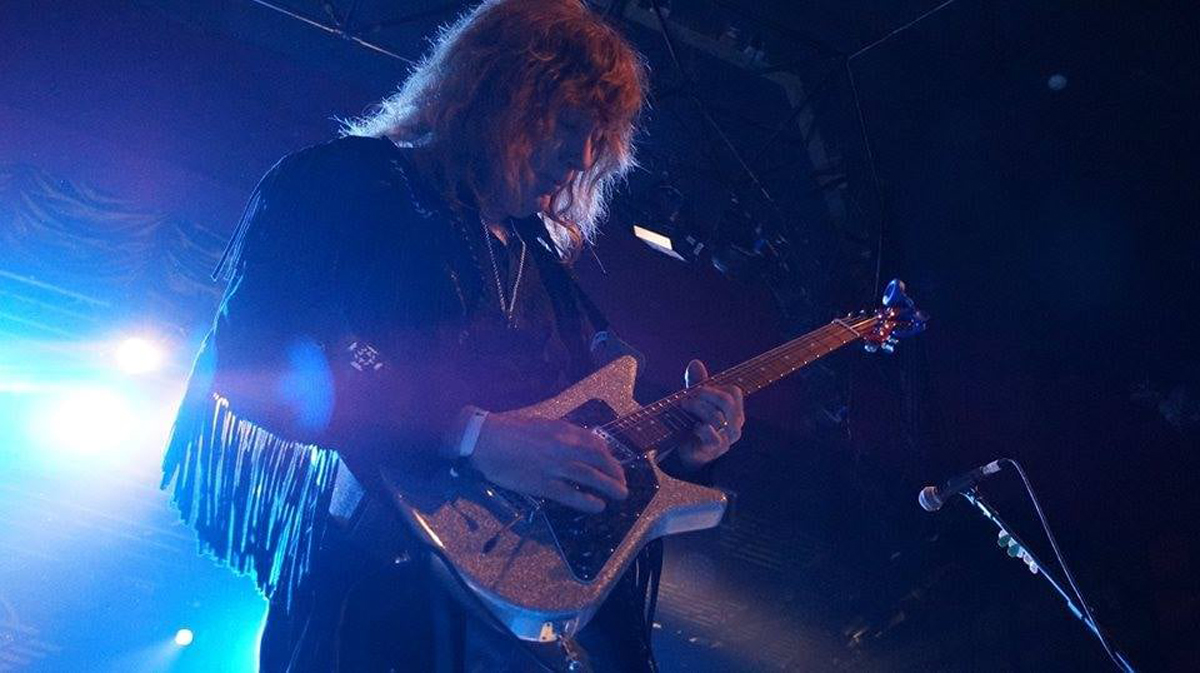
As a proverbial bridge-builder between the '70s and '80s, Starz's Stratocaster-wielding axe-slinger Richie Ranno proved pivotal to the trajectory of hard rock and heavy metal. But as a kid, the East Coast native could never have imagined the wild ride he was about to embark on via his guitar-related exploits.
"My passion for guitar started early," recounts Ranno. "I always loved surf rock and like many kinds. I saw the Beatles on the Ed Sullivan Show, and I was instantly hooked. Playing music seemed like this mythical thing to me, but once I had a guitar in my hands, there was nothing else I wanted to do."
Ranno first tasted success with Stories, a prog-rock outfit who oddly scored a number one hit with the R&B-tinged cut, Brother Louie. But fate wouldn't keep Ranno with Stories for long, as his path would soon converge with Kiss manager Bill Aucoin's latest venture.
"I first met Bill while I was out in L.A. with Stories," says Ranno. "We were hanging out with the guys in Kiss, and we were all friendly, at least early on. Things got weird later, but we were friends at first. Bill and his people seemed interested in me, but the timing wasn't right. But when Stories came to an end, little did I know that he'd end up managing me in Starz."
As the cocksure lead guitarist of Starz, Ranno stood beside enigmatic, chip-toothed frontman Michael Lee Smith as the new kids on the block. Their 1976 debut, Starz, made waves despite shoddy label dealings and a manager who reportedly had his attention focused elsewhere. They didn't know it then, but Starz would pave the way for a decade of divine absurdity just a few short years later.
"There wasn't a single time in Starz's history where we received a fucking break," Ranno admits. "It was ridiculous. We had everything we needed to succeed, but Capitol Records had zero idea what to do with us, and Aucoin was too busy snorting coke and hanging with Kiss to care. I liked Bill, I really did, but I can't say that we had his full attention as time went on. It's been gratifying to hear people like Tommy Thayer and Rikki Rockett say we were influences. And if you listen to bands like Mötley Crüe and Poison, it's obvious that we were."
As he prepares for yet another star-crossed chapter in an often jaded career, Richie Ranno sat down with Guitar World to discuss dirty dealings with Kiss and Rolling Stone Magazine, his friendship with Randy Rhoads, his choice of gear and what the future holds for Starz.
Get The Pick Newsletter
All the latest guitar news, interviews, lessons, reviews, deals and more, direct to your inbox!
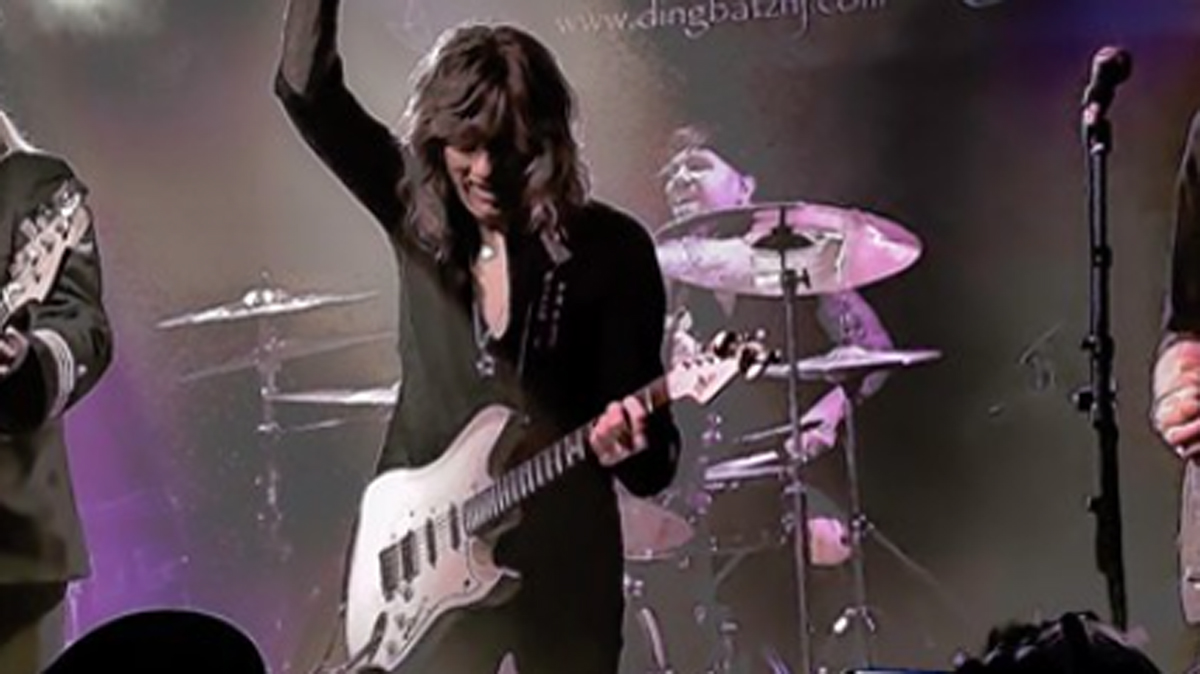
One of your early gigs was with Bungi. How did those early experiences shape you as a working musician?
“Bungi was a great group out of Washington, D.C., and we had somehow ended up in the Midwest because that's where the rock scene was. Believe it or not, the East Coast was awful in the early '70s. So, we went out there and toured all over the place, and man, it was a fucking disaster. We toured all over as a trio and finally ended up in Boston, and we weren't getting paid. It reached the point where we were invading people's gardens and stealing tomatoes to feed ourselves.
“So, we spent most of the summer of '73 up there and finally we got enough money together to get home. And on the way home, I said, 'Guys, fuck this. Drop me off at my parent's in Teaneck, NJ. I'm done.' So they did, and I was back on my parent's doorstep for the first time in five years. As for what it taught me… I learned the hard way that people will fuck you if they can.”
When you joined Stories, the band had a number one hit in Brother Louie. Did that experience alter your perception at all?
“I went from obscurity to being in a group with a number one record and playing with some great musicians. I felt good about things for the first time as a musician and I was having a blast going on tour with Black Oak Arkansas, Johnny Winter and all kinds of great people. But we have to remember that Brother Louie was not indicative of the music Stories did. That song was kind of a straightahead and almost R&B thing.
“The rest of Stories' stuff was more in line with prog-rock; fortunately, I liked some progressive rock groups, so it wasn't too off-putting for me, and I liked it. What was more important, though, was that being in Stories put me back into the New York scene, which I didn't know anymore since I had been away with Bungi for five years. It was a great time in my life, and if Stories didn't split up, who knows if Starz ever even happens?”
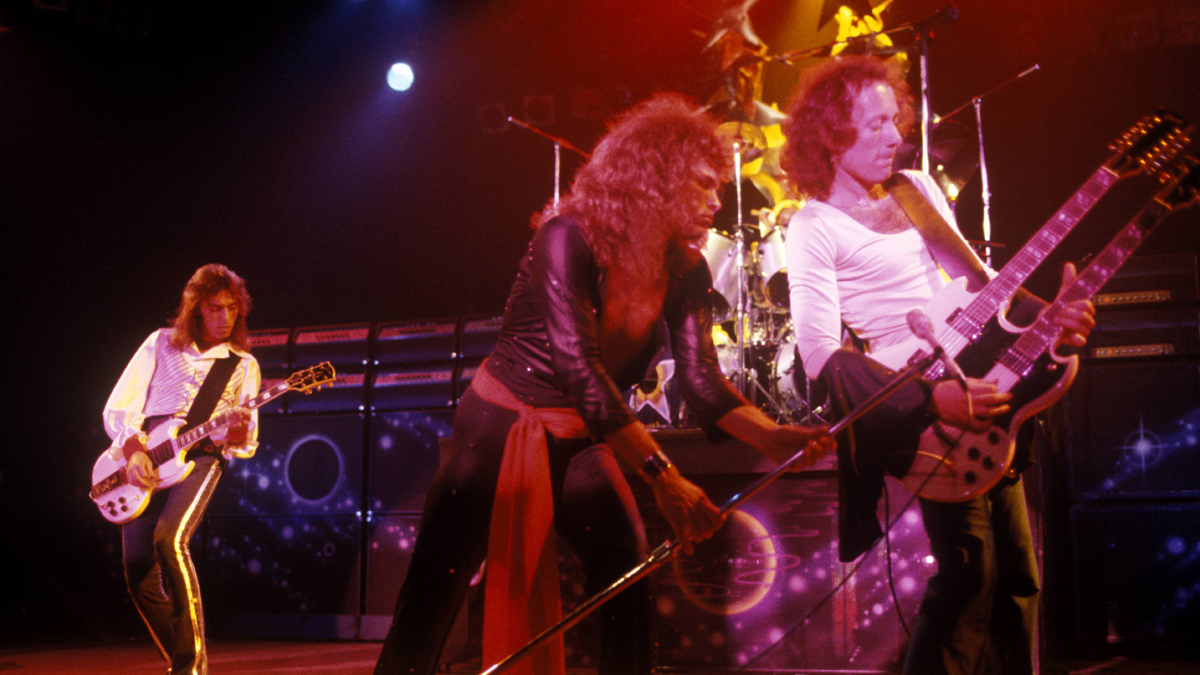
Before joining Starz, you had a history will Aucoin Management, right?
“Yep, that's true. Bill had asked Kenny Kerner and Richie Wise – who produced Kiss's first record – to produce some Stories stuff. I remember talking to Kenny, and he showed me Kiss's first album cover, which I thought was the weirdest thing I've ever seen.
“I said, 'What the fuck is that? Who are they, and why are they dressed like that? And why are their faces like that?' Kenny tried to explain it to me, and I was shocked to find out that it was a hard rock record. So I said, 'I'd like to hear it,' and Kenny goes, 'Here, man. It's yours.' He gave me his promo copy, which I still have. I love that album.”
Did you know the guys in Kiss as well?
“While I was with Stories, we met Kiss on the road. We stayed in the same hotel in L.A. with them for about 10 days, and we all hung out. Kiss was recording Hotter than Hell and we were playing the Whiskey and then doing American Bandstand. So, yeah, we were hanging around with Ace [Frehley], Peter [Criss], Paul [Stanley], and Gene [Simmons] and Bill [Aucoin] were there, too. We got along so well that I put them on the guestlist at the Whisky and they came down and hung out with us.
“At one point, I had all four guys standing around me backstage, and I had a little amp sitting there. I started playing one Kiss song after another and all four loved it and sang along. Then, after we were finished, Gene came up to me and said, 'Hey, you play great. I think you should quit Stories. You're a great hard rock guitar player. Bill is looking for a second band and I am sure he could find a spot for you.' I said, 'Well, that's very nice, but I don't think I'm gonna quit a group with a number one record.' But then, when Stories split up, that all changed.”
How did that ultimately lead to you joining Starz?
“After Stories called it quits, I knew I wanted to join a hard-rock band. I didn't want to fuck around anymore, and I had seen an ad in the Village Voice that said, 'Looking for a hard-rock guitar player for a new band,' and I thought, 'That sounds like the spot for me.' As it turns out, it was through Rock Steady Management, which was Aucoin's deal, so I called. The phone rings and this guy picks up, which turns out to be Sean Delaney, and he says, 'You play guitar? Yeah, okay. Are you the greatest rock guitar player on the planet?' And I thought, 'What the fuck is this guy talking about?'
“Normally, I would have hung up, but since this was Rock Steady, I said back to him, 'Uh, probably not.' He said, 'Well, then we don't want you.' I said, 'Oh, well then, you probably don't need me. You're all set.' He didn't hang up, and then I said, 'Look, I'm better than whatever chickenshit player you have. I wanna come down.'
“Long story short, they brought me in, had me plug in and play a few chords, and within minutes they said, 'We've had 75 guys come down here, and they all sucked. You're what we're looking for. You're in the band.' In a nutshell, that's how I joined Starz.”
Starz' self-titled debut remains a cult classic. Can you recount your approach during its recording?
“What many people don't know about the guitars on that record is that we tuned down half a step. We did it that way because Michael [Lee Smith] has great range and was singing high, so we wanted to lower the sound slightly to help save his voice.
“So, everything was in E and A, and I wrote songs like Boys in Action and Detroit Girls in A. We were pretty fair about the credits and tried to include everyone, but if I'm being honest, I wrote a lot of the music, and Michael would come up with the lyrics on the spot based on what I was doing, which was tailor-made to fit his voice.”
How did producer Jack Douglas become involved?
“Capitol Records and Bill Aucoin would go on to fuck us royally, but early on, I have to be fair, they were very supportive. Now, that didn't last, but when we were recording Starz, Bill said, 'You've got a big budget. You can get any producer you want to make this album special. We've got a lot of money here.' But none of us knew who we wanted, so we just started throwing names out there, which got very stupid quickly.
“I remember Brendan [Harkin] saying, 'Let's get George Martin,' and I immediately said, 'Hey, let's get real here.' Eddie Kramer's name got thrown out there and someone else mentioned Gus Dudgeon, which didn't feel right. Finally, I said, 'Let's just get Jack Douglas,' because of Aerosmith's incredible Get Your Wings. I thought he was a genius, so I suggested it, and when nobody objected, we got Jack.”
How big of an effect did Douglas have on the outcome of the record?
“Honestly, he was huge. Jack had produced many great records and his engineer, Jay Messina, was probably the best in the business. The best part of having Jack and Jay there was that they took what you did and didn't try to alter it. Instead, they wanted to enhance it. There's a big difference between doing that and being a producer like Ted Templeman, who made Van Halen sound exactly like Montrose.
“A guy like Ted doesn't want to go with the sound of the band, he wants the record to sound like a Ted Templeman record, and the band will need to be along for the ride. But Jack and Jay didn't do that; they took what we were and recognized that all they needed to do was enhance us. It's what he did with Aerosmith, and that's precisely what I was hoping for when I suggested it.”
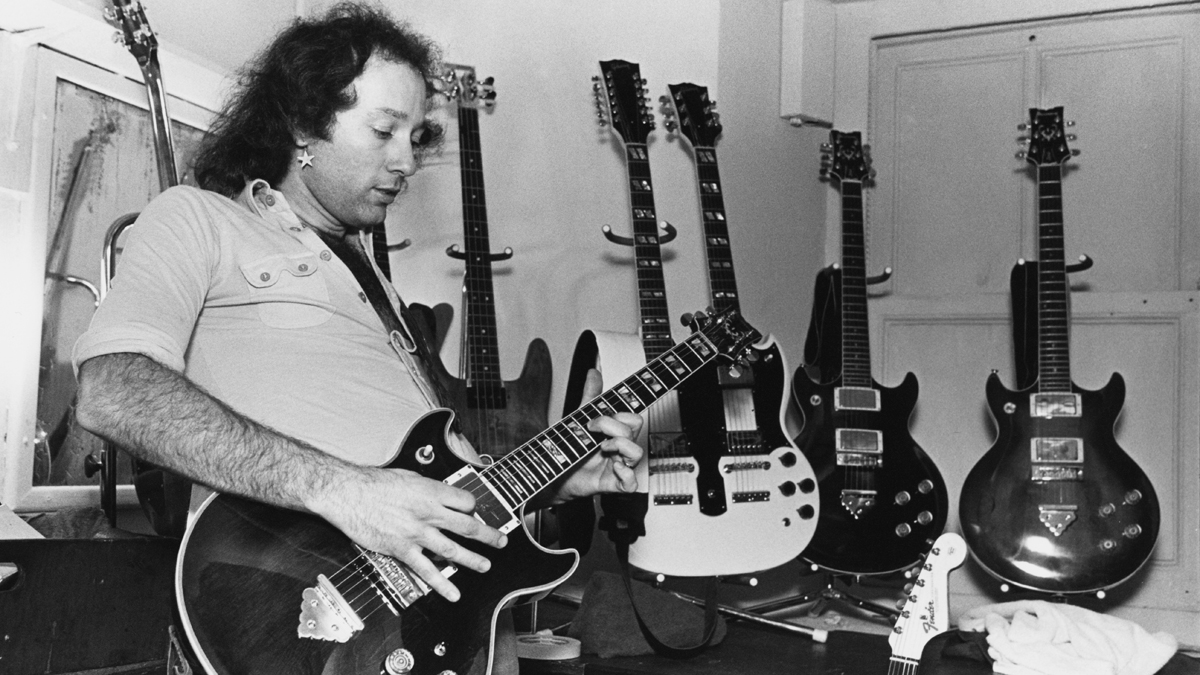
In the wake of Starz' release, the band had issues with Rolling Stone Magazine. Is that right?
“All the goodwill between Capitol Records and us evaporated nearly immediately once the album was released. The record was not distributed right, it wasn't in stores and they released the wrong songs as singles. So, we did a long tour and were making a name for the album on our own, and things were picking up steam because we were blowing the other bands off the fucking stage. But back then, there was no social media, and you needed magazines to help do some of the liftings, and while Capitol had paid for us to be in there through ads, there weren't any reviews to help get the word out.
“As you know, Rolling Stone's publisher, Jann Wenner, hates rock music, and we were no exception. The whole magazine has always been a sham that pushes his favorites based on bullshit backdoor dealings.
“But anyway, on that tour I mentioned, Rolling Stone sent out a young journalist named Kris Nicholson. So, she gets out there and she says, 'Oh, I love Starz. I can't wait to write a good review for Rolling Stone.' We thought, 'Great. That would be very helpful to what we're doing.' Kris watches the show, hangs out with us backstage, and we have a great time. She gives me her card, and she's on her way.
“To make a long story short, the next issue of Rolling Stone comes out and Kris Nicholson wrote the most scathing review of Starz's album and live performance that you could imagine. Fast-forward to a few weeks later and I'm walking through NYC's East Village, and I realize, 'Hey, I think I'm close to where Kris Nicolson lives.' I got the idea to bang on her door and ask her why she did what she did.
“I walked a few blocks to her apartment, banged on the door and when she opened it, she looked shocked as shit. I said, 'Why did you trash the band like that?' She said, 'Well, Jann told me to. He told me to write a bad review or I'd lose my job. He hates Starz.' And so, yes, Rolling Stone Magazine fucked Starz. They could make or break a band back then, and because Wenner hated rock music, he broke us.”
Bill Aucoin has been lionized for his work with Kiss. Did he offer the same support for Starz?
“That's a loaded question. If we got back to the Rolling Stone thing, you have to remember that Wenner already hated Kiss, so what do you think they thought of us being represented by the same manager? We inherited their hatred. We also didn't know that Bill had made some enemies with a few big-time promoters out in San Francisco and other places. When we were on tour, we had all kinds of issues getting into some places, and then we came along with the same management, so we inherited their hatred.
“And then there were the constant rumblings of the guys in Kiss being unhappy with Bill's attention being on us. It was no coincidence that all the support was pulled just as Cherry Baby was about to break the top 20. This was just as Kiss was beginning to have issues publically. You can put two and two together.”
To clarify, do you feel that the guys in Kiss undermined Starz?
“I know that for a fact. I can't give names, but tons of guys who worked for Kiss told me that Bill Aucoin was giving in to that. Now, don't get me wrong, I think it was coming from Gene and Paul for the most part, because Ace and Peter are just not those kinds of guys.
“I still love Peter, he's a friend of mine, so there are no issues there. It was a long time ago and I don't resent anything of whatever happened at all. It is what it is. I think it came down to Kiss having issues and they felt they needed Bill's full attention. And Kiss was the band that got him there, so if they felt neglected, what could he do?
“There was a certain amount of ego involved in the Kiss thing, more so than probably any other band, because no one knew what they looked like, and they felt they were these superheroes of rock. The weird thing with Kiss is they didn't get the adulation from the public that they wanted outside of the Kiss thing.
“I remember being at a show in NY, and Paul was there, and no one cared about who he was. No one knew who they were without makeup, so maybe they didn't resonate back then. Not that I was the biggest thing, but people recognized me when I went out, and I think things like that bothered Paul and Gene a lot.”
How did you first meet Randy Rhoads?
“Randy Rhoads was a friend of mine from back in the '70s. He was a big fan of Starz, and I think he was around 19 when I first met him with his bass player friend, Kelly Garni. He showed up at a Capitol Records release party in Santa Monica in 1976, and we were getting ready to play the Aquarius Theater. He just came up to me and said, 'Hey, I'm Randy. I play guitar and I love the band.' We ended up chatting for the rest of the day and hung out. He came to the show and I didn't see him again.
“Fast-forward to 1979, Starz is playing the Starwood in L.A., and Randy makes his way up to me and yells, 'Quiet Riot.' I say, 'Hey, Randy, how are you? What does that mean?' And he says, 'Quiet Riot is my band. Check them out.' I kept that in my mind but didn't see Randy again.
When those two Ozzy solo records came out, I didn't realize it was Randy Rhoads on guitar. I loved the records but didn't know it was him
“The thing that nobody believes me about is that when those two Ozzy solo records came out, I didn't realize that it was that same kid on guitar. I had no idea. I loved the records but didn't know it was him. And after the terrible accident, I saw the news, saw his picture, and just went, 'Oh, no. Man, this is the same kid.' It was a tragedy and very upsetting.”
Can you recount your audition for Ozzy Osbourne?
“Like I said, I was a huge fan of those records, but I didn't know Randy was in the band. Honestly, I was so disenchanted after Starz ended that I wasn't tuned into music the way I had been in terms of specifics. But Randy had always been a big fan of mine and I guess he had mentioned my name to the road crew and management, so my name was floating around their orbit.
“And after he passed, they called me, asked me to come out and got me a room at the Sunset Marquis, which was my favorite place to stay back those days. I didn't have much time, but I had to learn some songs, and be as good as Randy was. It's not like it was an easy task.
“I learned Crazy Train, I Don't Know, Goodbye to Romance and Over the Mountain, and went in for the audition. I was trying to play as much like Randy as I could, which was not easy, but it went great. But then Don Airey told me I was the first person to audition, and I felt like, 'Fuck, I am in a bad spot here,' because you never want to be first. They had Robert Sarzo come in and then Bernie Tormé, who, as we know, got the job.
“I think the record company wanted him. Having Robert and me there was more of a formality. Maybe the band would have liked to have me, but their record company wanted Bernie in there, so that's how it shook out. I know I played great with the guys, and so did Robert, but I never heard Bernie play, so I have no idea how his audition was.”
Can you give us the backstory of your iconic Fender Stratocaster with the pearl star inlays?
“I still remember when I got it. The first thing I thought was, 'Wow. I've never seen a humbucker in a Strat before.' I got the guitar in January 1974, so I was still in Stories. I remember I bought it from Pastore Music, a great store in Union City, New Jersey. A luthier there had taken an old '58 Strat that was in bad shape and fixed it completely.
“The thing was in such bad shape that he went ahead and modified the hell out of it. He ground down the back of the neck and flattened the radius on the top of the neck. Then he inlaid these pearl stars in the fretboard and painted the headstock white. I'd never seen a guitar that matched the body's paint job with the headstock like that.”
Was your connection with the Strat immediate?
“I had been wandering around the store and for some reason the guy said, 'Hey, I think this guitar is perfect for you,' and handed me the white Stat. I immediately said, 'Oh, no, not for me. I only play regular Strats. Sorry, but I'm a purist.' But he said, 'Listen, give it a shot. This one is special,' and I said, 'Okay, give me the guitar.' I plugged it in, played it for about 30 seconds, and said, 'This is the most amazing guitar I've ever played. How much do you want for it?' [Laughs].
The star inlays on my Strat were the inspiration for re-naming the band Starz. It was crucial to the band's sound and became the poster child for its aesthetic
“I am still thankful that he gave me the guitar for around $300 with the case. The sound of that guitar was just amazing and it immediately became the guitar I used in Stories. When I joined Starz, the band was called Fallen Angel at the time, but the star inlays were the inspiration for re-naming the band Starz. That guitar was crucial to the band's sound and became the poster child for its aesthetic.”
Do you still play it?
“I still have it, and when I play it, the sound of Starz rings out just as it did back in the '70s. I have a lot of guitars and I play them all, but that one is special. I don't play it for the local gigs I do; I use my [Ernie Ball] Music Man for that. Unless I am doing something Starz-related, the white Stat sits on the stand next to my bed so that I can keep an eye on it.
“But I play it from time to time by myself in my room and when I do, the sound of Starz magically comes right back. The thing is pretty beat up, and it still has the same two single-coil pickups it had when I bought it. The paint is the same, too. It could probably use a paint job, but I'm not going to do that. There's too much history in the dings and scratches.”
You mentioned a Music Man. What else are you using these days?
In my opinion, Music Man is the best – they have amazing tone, quality and playability
“I have a bunch of different amplifiers that I use according to the gig. I still use a Marshall when I play with Starz. As far as guitars, when I am gigging around, I like my Music Man Albert Lee P-90. I keep it simple with the three pickups and a solid maple neck. I use the Albert Lee model because he is the greatest guitar player who ever lived, so it's no surprise that his guitar would be great. And I have to say, Music Man is a great guitar company.
“Many people seem to like PRS guitars these days, but I think they're awful. In my opinion, Music Man is the best. They have amazing tone, quality and playability. I love their customer support and I enjoy the quality and consistency of their builds. You have many companies out there these days that make one bad guitar, then one good one, and then an okay one. With Music Man, they're consistently good and that's what I need.”
What does the future hold for Starz?
“Sadly, there is no future for Starz. We will be doing a gig on December 9, 2022, at Dingbatz in Clifton, NJ. Michael can't do it anymore; without him, I see no reason to continue. it was a great run since we reunited around 20 years ago.
“We had a lot of fun playing live, but lately, we haven't been able to do a lot, and we never could get together on a new album. But it was great to relive the music and be with each other on stage again. We exorcised a lot of old demons.
On December 9, we're going to get together, play some songs and then we'll bury the old Starz logo in some field here in New Jersey and call it a day
“On December 9, we're going to get together, play some songs and then we'll bury the old Starz logo in some field here in New Jersey and call it a day. We've known about it for a while but haven't wanted to call it the 'final gig' because we didn't want it to seem like a cheap ploy.
“But the truth is, December 9 is Starz' final gig. We've had a black cloud over us for so long, so we want to lay it to rest while we've still got some good feelings associated with it.”
- Tickets for Starz's final show on December 9 are available now.
Andrew Daly is an iced-coffee-addicted, oddball Telecaster-playing, alfredo pasta-loving journalist from Long Island, NY, who, in addition to being a contributing writer for Guitar World, scribes for Bass Player, Guitar Player, Guitarist, and MusicRadar. Andrew has interviewed favorites like Ace Frehley, Johnny Marr, Vito Bratta, Bruce Kulick, Joe Perry, Brad Whitford, Tom Morello, Rich Robinson, and Paul Stanley, while his all-time favorite (rhythm player), Keith Richards, continues to elude him.
“I always felt like that record could have been better if we had worked on it some more”: Looking for a blockbuster comeback album, Aerosmith turned to Van Halen producer Ted Templeman. For Joe Perry, it served as a learning experience
Guitar World Discussion: Who is the most underrated guitar player of all time?











